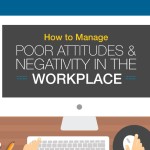
Air quality is something you may only appreciate fully when you actively notice that it’s missing. That tends to happen when the air quality is really bad, for example, if you’re standing near a BBQ or a bonfire. When air quality is poor rather than bad, it may slip below the radar. It can, however, still have a serious impact on your employees’ health and hence their productivity.
Understanding air quality
In the old days, poor air quality was largely the result of burning coal. This produced all sorts of harmful byproducts including smoke, ash and chemicals. For many people, damp was also a major issue. It led to mildew and mould both of which are known to be bad for lung health.
Damp continues to be an issue today, although for different reasons and generally not in work environments. In the modern world, mildew and mould tend to be caused by condensation. The condensation is caused by steam from activities such as washing and cooking becoming trapped in highly-insulated buildings.
Dominic Little, Director of Chill Air Conditioning commented on the topic, “In most work environments, the real issues are dust, carbon dioxide (CO2) and general chemicals. The main chemical pollutants are likely to be volatile organic compounds (VOCs) tobacco smoke and nicotine. VOCs are released from many products including paints and solvents. Tobacco smoke and nicotine are brought into workplaces on people’s bodies.
Other chemicals you are likely to find in workplaces include polychlorinated biphenyl (PCB), polybrominated biphenyl (PBB), polyurethane and formaldehyde. Again, these come from a variety of sources including a few which may surprise you such as furniture, floor coverings and wall coverings as well as the less surprising cleaning and maintenance products.”
The effect of poor air quality
The precise effect of poor air quality generally depends on what is causing the problem. Dust can lead to people’s airways becoming unpleasantly clogged and trigger coughing fits. Slightly elevated CO2 levels lead to drowsiness. Very elevated ones can lead to more serious problems from headaches to seizures and fainting.
Chemicals have a wide variety of effects. What’s more, the effects can be experienced differently by different people. For example, people with very robust constitutions may feel little more than mild discomfort. More vulnerable people by contrast may experience far more severe symptoms.
From an employer’s perspective, the key point to note is that poor air quality is inevitably going to have some form of impact on your employees’ health and wellness. In a worst-case scenario, you could find yourself on the receiving end of legal action for breach of health and safety. More likely, will find yourself dealing with a loss of productivity, unnecessary sickness days and unnecessary staff turnover.
Most organisations which go for ISO OH&S standards would know it very well that how important it is to ensure good air quality in workplaces. Periodic review and monitoring of air quality in offices is must for complying to those standards.
Achieving high air quality
If you are in a workplace with air conditioning, then it’s vital to use it effectively. Firstly, you want it to bring in as much fresh air as possible, rather than just continually recycling old air. This is especially important while COVID19 is still at large. Even without COVID19, however, you still need to ensure that your air supply is as clean and fresh as possible.
With that in mind, you also need to take good care of your air conditioning system. In particular, make sure that the filters are cleaned regularly. If the filters get clogged then stale air will almost certainly wind up being recycled through your workplace no matter what your proper settings are. Monitor your air quality continually as any issues with it are likely to point to an issue with your air conditioning.
If you’re using an office without air conditioning then try to open the windows as much as possible. When the weather gets too cold for this, consider running air-cleaning devices. Smaller workplaces might even be able to use consumer-grade devices.
Regardless of how you ventilate your office, try to use eco-friendly cleaning products. Not only are they kind to the environment, but they’re also kind to your air.














